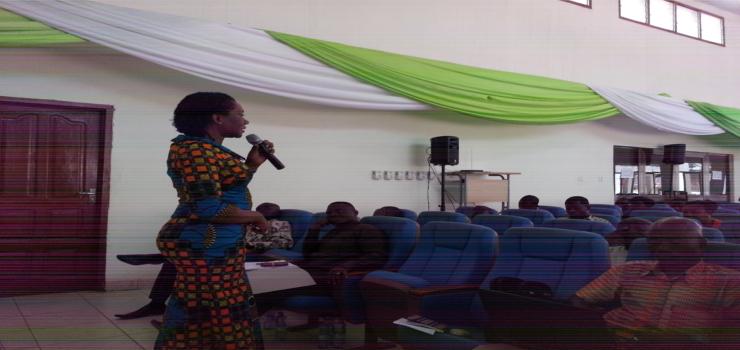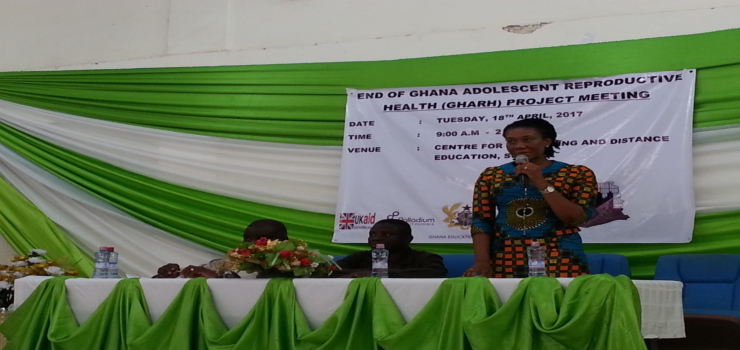The Ghana Health Service (GHS) in collaboration with the National Population Council (NPC), Ghana Education Service (GES), the National Youth Authority (NYA) and other partners organised and launched the 2017 Adolescent Sexual and Reproductive Health (ASRH) Week on 27th March, 2017 in Kumasi, Ashanti Region under the theme “Preventing Adolescent Pregnancy, a Shared Responsibility”. The ASRH week is celebrated yearly to raise awareness on sexual and reproductive health issues and challenges facing adolescents and young people in Ghana.
As part of the celebration, several activities were organised prior to the Launch of the ASRH Week, from 22nd to 27th March, 2017. As a key partner, the NPC actively participated in the celebrations including school and community outreach programmes, ASRH Fair and radio discussions involving the YOLO cast. Issues discussed during these activities evolved around adolescent pregnancy, ASRH challenges of adolescents and counselling.
The NPC, GHS, GES/SHEP, the Palladium Group, selected NGOs and the YOLO cast who are ASRH ambassadors undertook outreach programmes to four schools comprising three Senior High Schools (SHS) and one Junior High School (JHS) in and around the Kumasi Metropolis. The names of the schools are Kumasi Academy SHS, Kwame Nkrumah University of Science and Technology (KNUST) SHS, Weweso JHS and AfuaKobiAmpem SHS.
An ASRH Fair was organised at the Manhyia Health Centre as part of the activities. At the Fair, counselling and educational information on ASRH issues were provided to both the JHS and SHS students present. There were facilitators/ resource persons to guide the discussions.
The NPC and the YOLO cast actively participated in some radio panel discussions organised by the GHS to increase awareness on the relevance of the theme of the ASRH Week celebration. The panel discussions were held on three radio stations namely Otec FM, Kessben FM and Kapital Radio in the Kumasi Metropolis. The issues discussed evolved around adolescent pregnancy and the ASRH issues portrayed in the YOLO TV serial.
The Launch of ASRH Week
The Launch was attended by over 600 participants from the Kumasi Metropolis and its environs. Also in attendance were representatives from Ministries, Departments and Agencies (MDAs) and Metropolitan, Municipal and District Assemblies in the Ashanti and Greater Accra Regions. The national level representations were from the United States Agency for International Development (USAID), United Nations Population Fund (UNFPA), National Youth Authority (NYA) National Population Council (NPC) and Ghana Education Service. The Civil Society Organisations (CSOs) were represented by Hope for Futures Generations (HFFG) and Maries Stopes International Ghana (MSIG). The keynote address was delivered by Her Excellency, Samira Bawumia, Second Lady of the Republic of Ghana.Also partners and dignitaries including the Executive Director of the NPC, Dr. Leticia Adelaide Appiah delivered messages during the programme. There were with cultural displays, poetry recitals and a brief role play by the YOLO cast (ASRH ambassadors).










